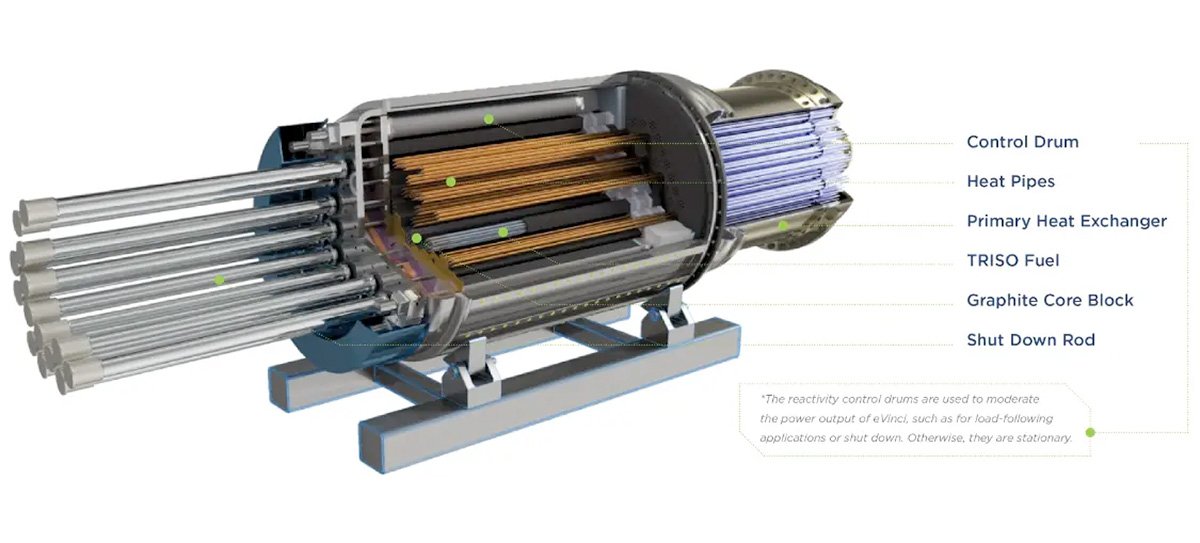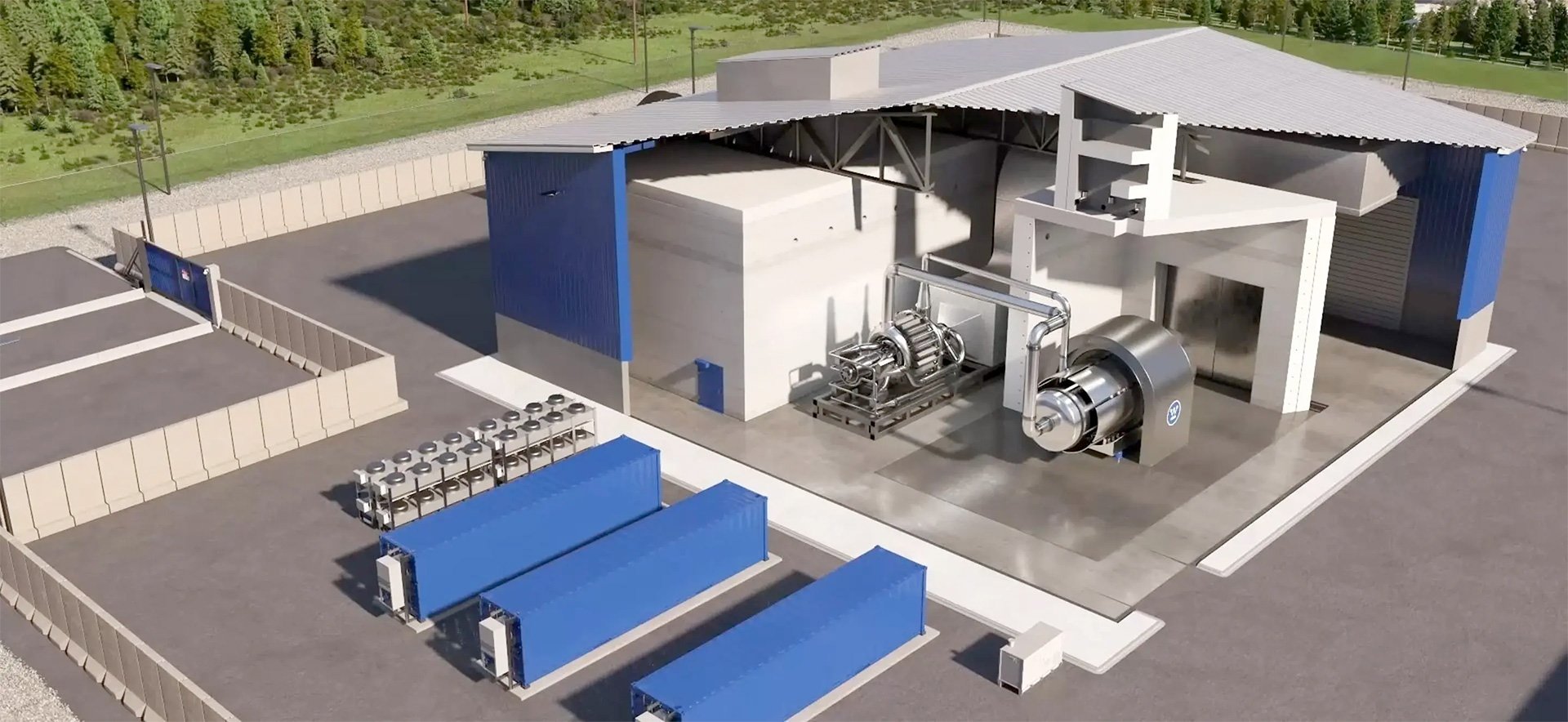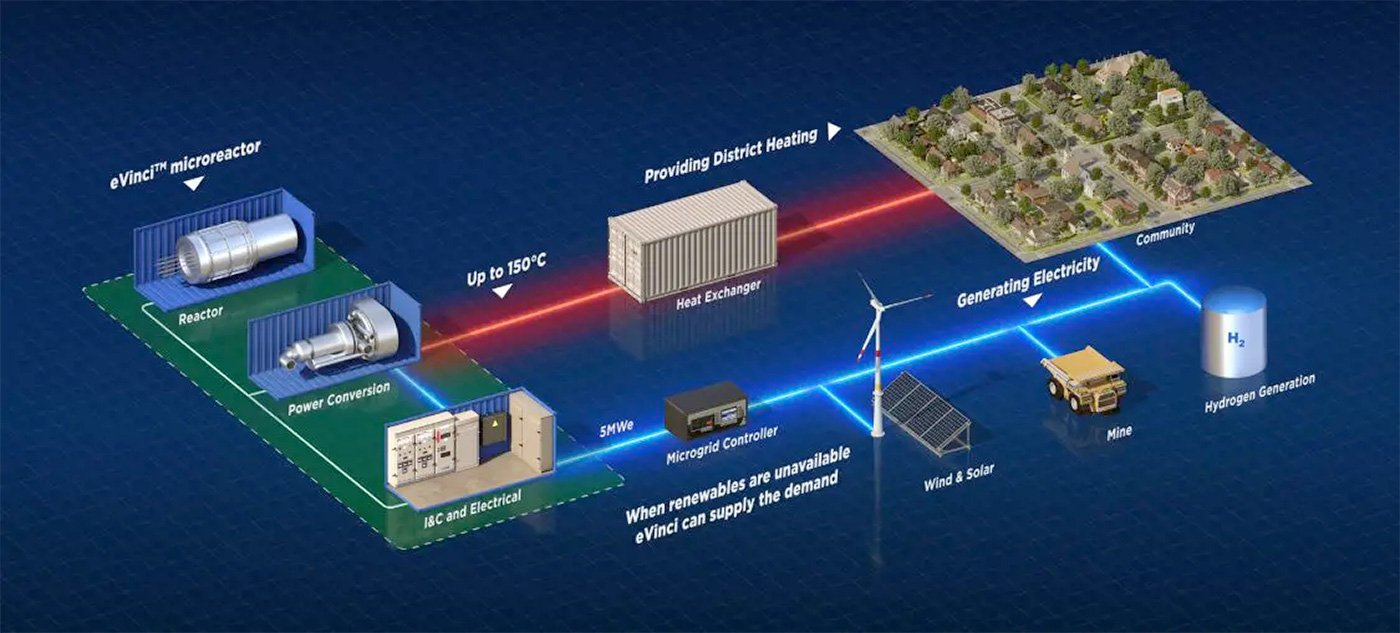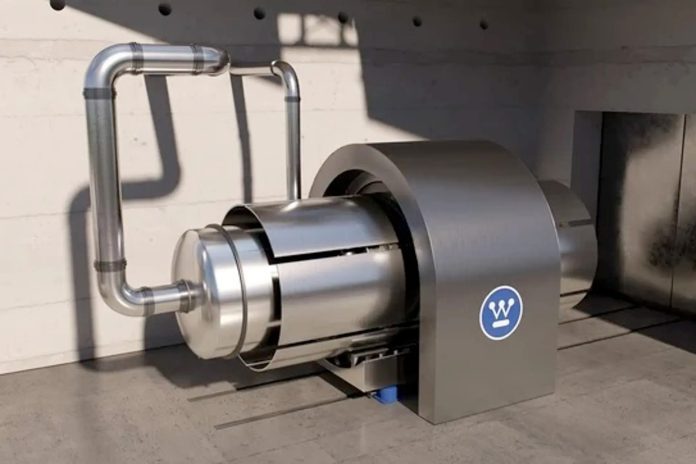The Westinghouse Electric Company is pushing forward with the development of its eVinci nuclear microreactor, a compact and innovative energy solution designed to address the growing demand for sustainable, zero-emissions power. With its roots in space nuclear technology, the eVinci stands out for its small size, minimal operational complexity, and ease of refueling, making it a promising option for the future of clean energy.
Resurgence of nuclear energy amidst climate challenges
As global concerns over climate change intensify, nuclear energy is regaining attention due to its potential to generate significant amounts of power without emitting greenhouse gases. However, the nuclear industry has faced persistent challenges in terms of safety, availability, cost, and lengthy construction timelines, which can take years. The eVinci microreactor aims to address many of these concerns by offering a simplified and efficient design.
A small yet powerful reactor
The eVinci microreactor, measuring less than 10 feet (3 meters) in diameter, has the capability to produce up to 5 megawatts of electrical power (MWe) with a thermal core design rated at 15 megawatts (MWth). Despite its small footprint, the reactor can operate for over eight years on a single fueling cycle, providing a long-term energy solution. Once the reactor’s fuel is depleted, the entire unit can be shut down and transported back to the factory for refueling or replaced with a new unit—similar to swapping out a gas bottle.
One of the key features of the eVinci reactor is its ability to be manufactured in a factory, reducing the need for complex on-site construction, which is a common obstacle for larger nuclear reactors. This modular approach not only simplifies the manufacturing process but also reduces costs and speeds up deployment times.

A safe and robust design
What sets the eVinci microreactor apart from other nuclear technologies is its reliance on TRISO fuel. This fuel, composed of uranium enriched to 19.75%, is formed into tiny pellets that are extremely heat and corrosion-resistant. These pellets are packed into small spheres, which are then assembled into fuel rods for the reactor core. The TRISO fuel’s durability and resistance to extreme conditions make it a safer option for long-term nuclear power generation. The design of the eVinci reactor ensures that the nuclear reaction remains self-limiting and cannot spiral out of control.

Another significant safety feature is the absence of moving parts during normal operation. The reactor does not require water or other coolant circulation systems. Instead, it utilizes a solid-steel monolith that houses the core, with heat being passively conducted away using alkali heat pipes. These pipes rely on phase changes in the alkali metal to transfer heat, converting it into electricity without the need for active cooling systems. In the event of an emergency, safety mechanisms such as shutdown rods and a rotating drum that passively rolls into place ensure the reactor can be safely deactivated.

Versatility in applications
The compact and portable nature of the eVinci microreactor makes it highly versatile. Westinghouse envisions its use not only for civilian power generation but also in a wide range of other industries. The reactor could be deployed in remote locations, mining and drilling operations, industrial facilities, district heating systems, and even military bases and data centers. Additionally, the eVinci’s ability to operate on-demand allows it to be integrated with renewable energy sources such as wind and solar, creating a hybrid power system that can adapt to fluctuating energy demands.
A step towards commercialization
Westinghouse has made significant strides toward commercializing the eVinci microreactor. A major milestone was the submission of a Preliminary Safety Design Report (PSDR) to the Department of Energy’s (DOE) National Reactor Innovation Center (NRIC). This report is a crucial step in the regulatory process and demonstrates Westinghouse’s commitment to bringing the eVinci microreactor to the market.

Jon Ball, President of eVinci Technologies at Westinghouse, emphasized the importance of this achievement, stating, “This PSDR submission is a critical step towards bringing the Westinghouse eVinci Microreactor to commercial operation.” The company is aiming to deploy multiple eVinci reactors worldwide by the end of the decade, with continued collaboration with the Department of Energy and other key partners playing a vital role in this process.
Source: Westinghouse



